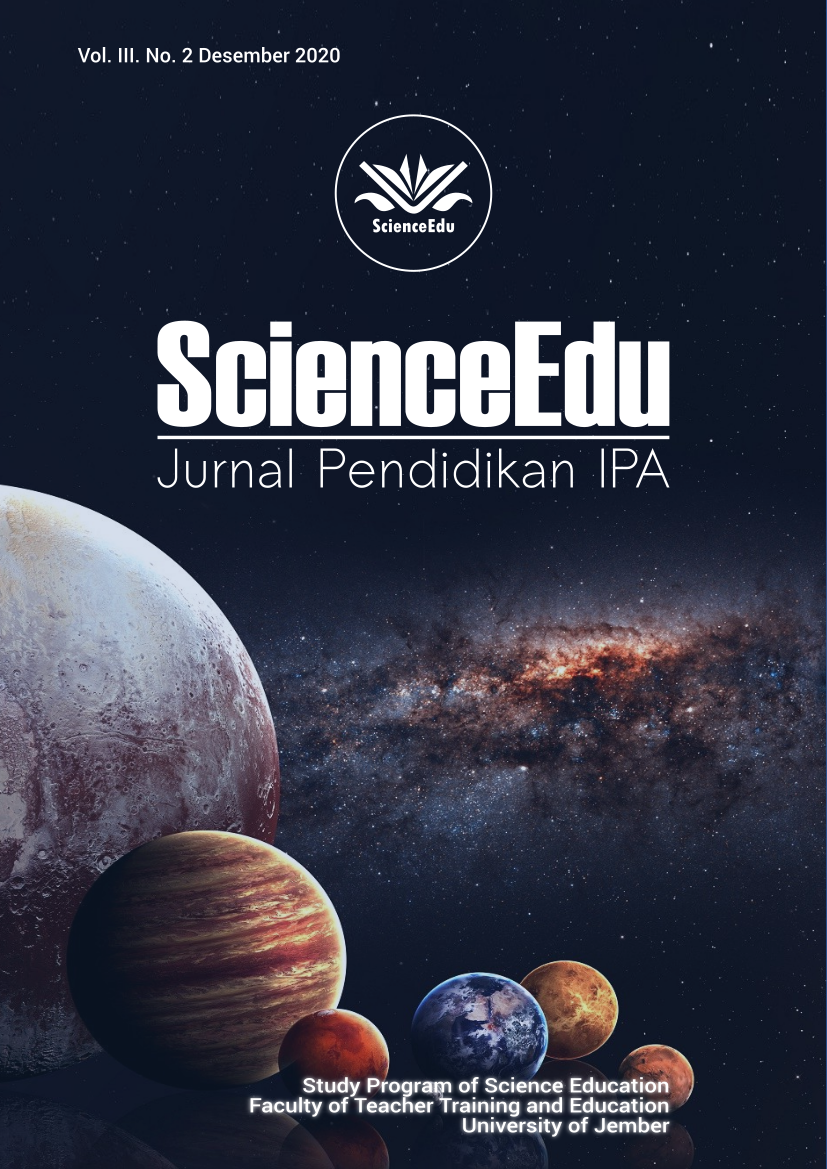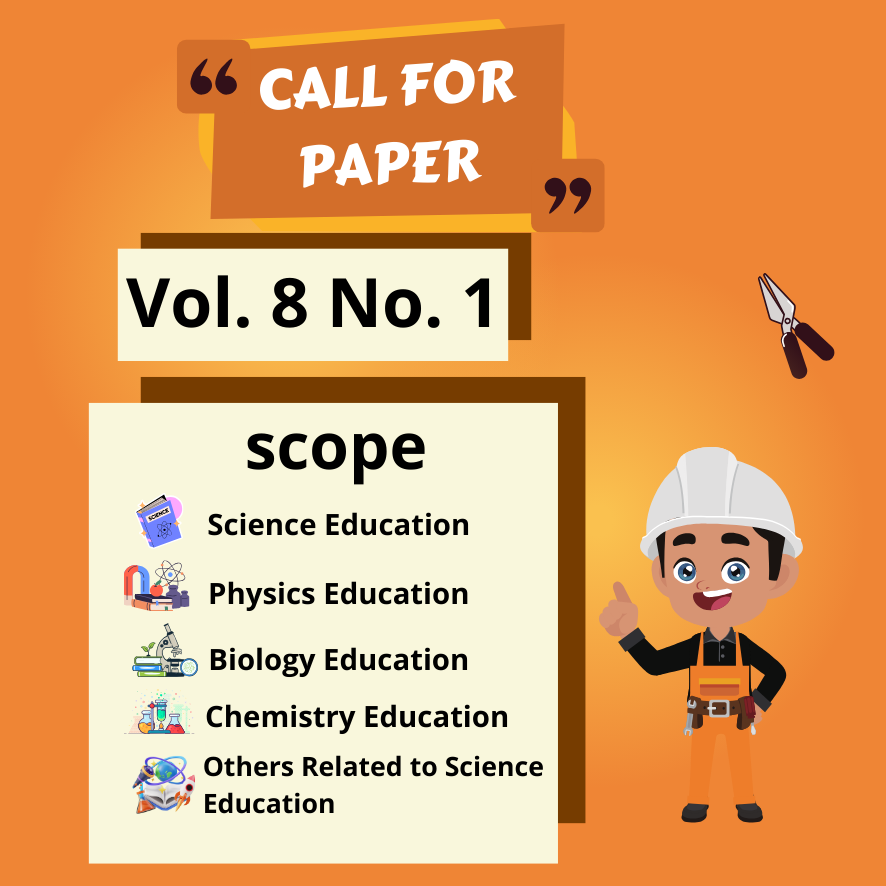THE EFFECT OF THE USE OF PROBLEM BASED LEARNING (PBL) MODEL ON THE RESULTS OF STUDENTS LEARNING SCIENCE IN SMP
DOI:
https://doi.org/10.19184/se.v3i2.19815Keywords:
PBL Model, Science Learning OutcomesAbstract
The purpose of this study is to determine the effect of the use of the problem-based learning (PBL) learning model on science learning outcomes of students of SMP Negeri 2 Ruteng Beokina in the academic year 2019/2020. In this study, researchers used a type of survey research with a quantitative approach. The design of this study is ex-post facto. The population in this study were all eighth-grade students of SMP Negeri 2 Ruteng Beokina, with 178 students. The sample in this study amounted to 66 people. The sampling technique uses simple random sampling. Data obtained from the study sample in the form of science learning outcomes value of pressure material. Data analysis using t-test. The results of the study indicate that learning physics using PBL learning models can affect the learning outcomes of science students of SMP Negeri 2 Ruteng Beokina in the academic year 2019/2020. This is evidenced by the results of calculations using SPSS software version 24, namely the value t = 19.095, of sig (2-tailed) or (0,000 <0.05) at α = 5% and dk = 65.
Downloads
References
Daimatul Makrifah, Sudarti, subiki. (2015). Pembelajaran Fisika Melalui Model Problem Based Learning ( Pbl ) Disertai Peta Konsep Di Man 2 Jember ( Pada Pokok Bahasan Kinematika Gerak Lurus ) Program Studi Pendidikan Fisika FKIP Universitas Jember. 312–318.
Farisi, A., Hamid, A., & Melvina. (2017). Pengaruh Model Pembelajaran Problem Based Learning terhadap Kemampuan Berpikir Kritis dalam Meningkatkan Hasil Belajar Ssiswa pada Konsep Suhu dan Kalor. Jurnal Ilmiah Mahasiswa, 2(3), 283–287. http://www.jim.unsyiah.ac.id/pendidikan-fisika/article/view/4979
Janah, M. C., & Widodo, A. T. (2018). Pengaruh Model Problem Based Learning Terhadap Hasil Belajar Dan Keterampilan Proses Sains. Jurnal Inovasi Pendidikan Kimia, 12(1), 2097–2107.
Mairani, E., & Simatupang, S. (2018). Pengaruh Model Problem Based Learning Terhadap Hasil Belajar Ranah Kognitif Tingkat Tinggi Siswa Pada Materi Suhu Dan Kalor Kelas X Semester Ii SMA Negeri 5 Tanjung Balai T.P 2016/2017. INPAFI (Inovasi Pembelajaran Fisika), 6(1). https://doi.org/10.24114/inpafi.v6i1.9488
Nasar, A., & Kurniati, K. (2020). Comparing Students’ Learning Outcomes Using Problem Based Learning Model and Inquiry Based Learning Model. Jurnal Pendidikan Fisika, 8(1), 43–55. https://doi.org/10.26618/jpf.v8i1.2127
Slamento. (2003). Belajar dan Faktor-faktor yang Mempengaruhinya. Jakarta: Rineka Cipta
Sumantri, S. M. (2015). strategi pembelajaran (teori dan praktek ditingkat pendidikan dasar). Jakarta: PT. Rajagrafindo Persada.
Suprijono, A. (2009). Coopreative Learning, Teori & Aplikasi PAIKEM. Surabaya: Pustaka Belajar.



